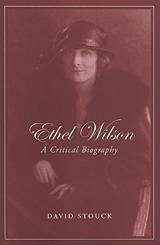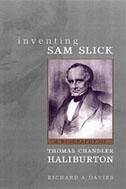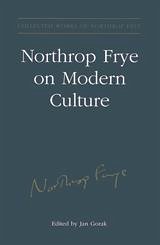
Ethel Wilson
A Critical Biography
Versandkostenfrei!
Versandfertig in über 4 Wochen
77,99 €
inkl. MwSt.

PAYBACK Punkte
39 °P sammeln!
When Ethel Wilson published her first novel, Hetty Dorval, she was in her sixtieth year. With her subsequent books, among them the widely read Swamp Angel (1954), she established herself as one of Canada's most important writers. Although she fostered a reputation for being an unambitious latecomer, a happily-married doctor's wife who wrote for her own pleasure, she in fact took her writing very seriously, trying for several years to place her work with major American publishers. David Stouck's engaging biography on this elusive Canadian writer draws on archival material and interviews to desc...
When Ethel Wilson published her first novel, Hetty Dorval, she was in her sixtieth year. With her subsequent books, among them the widely read Swamp Angel (1954), she established herself as one of Canada's most important writers. Although she fostered a reputation for being an unambitious latecomer, a happily-married doctor's wife who wrote for her own pleasure, she in fact took her writing very seriously, trying for several years to place her work with major American publishers. David Stouck's engaging biography on this elusive Canadian writer draws on archival material and interviews to describe, in detail, her early life as an orphan in England and Vancouver and her long writer's apprenticeship, spanning from the publication of some children's stories in 1919 to the appearance of Hetty Dorval in 1947. Stouck's narrative charts the resistance among publishers, critics, and readers to the curious mixture in her work of an Edwardian sensibility and a postmodern intelligence. He also documents her own resistance to both literary nationalism and creative writing classes as strategies for promoting literature. She was nevertheless one of the few Canadian women writers to emerge from the 1950s, and she is, remarkably, still being read - all her books remaining in print. Stouck observes that Wilson's writing is marked by epistemological and ethical uncertainties that are rooted in the contingencies of language, because, as Wilson herself liked to quote from Lewis Carroll, the 'meaning [of words] depends on who is the master.' Ethel Wilson: A Critical Biography is the story of a distinguished writer whose works are rightly considered classics of Canadian literature.












